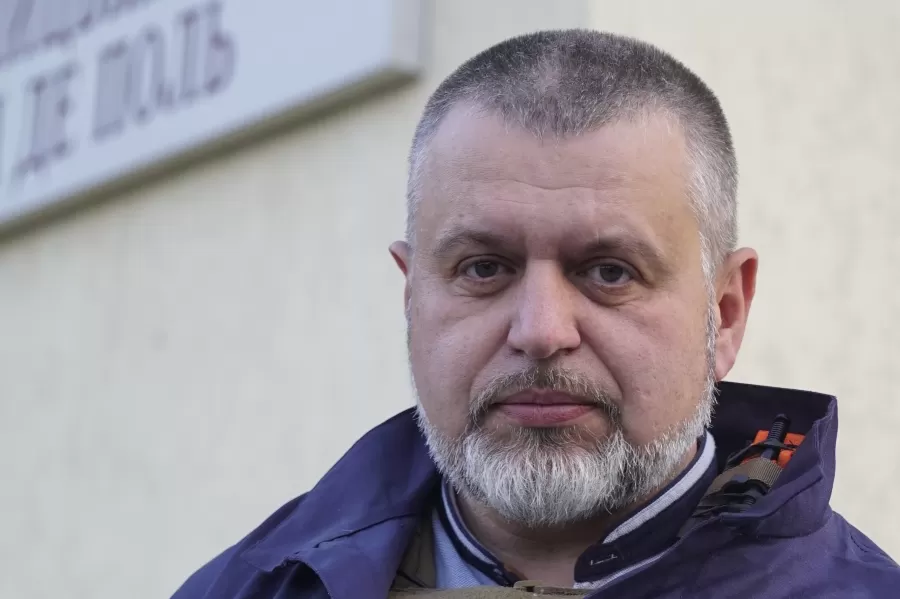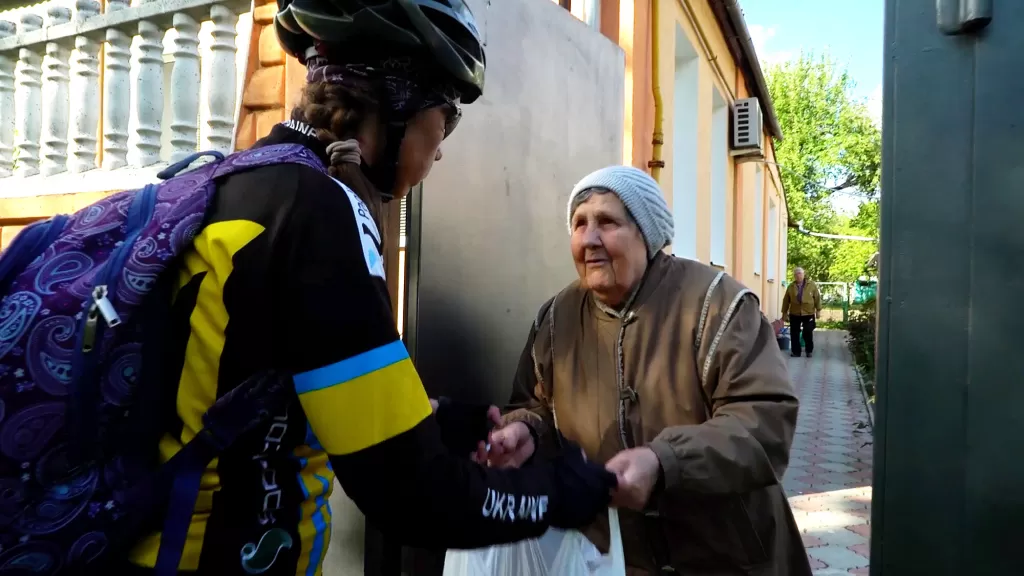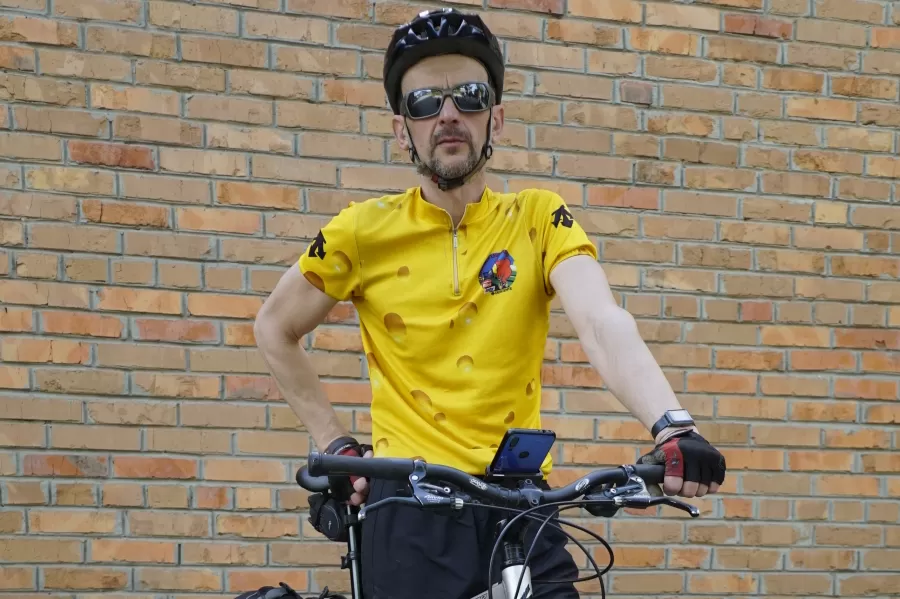Millions of people have fled their homes since the start of the conflict in Ukraine, but leaving is not an option for many older people and those with disabilities. They now find themselves isolated, unable to access food and basic necessities.
In Kharkiv, Ukraine's second largest city, DEC funds are supporting an innovative project that delivers regular food baskets to people's homes, thanks to a network of volunteer cyclists.
The idea was born after fuel shortages threatened to impact aid deliveries. One volunteer, desperate to find a way to send food to her friend, put out a message on social media that spread among friends who remained in Kharkiv with their bicycles.
The cycling team's efforts are now a lifeline for 700 housebound people.
“I say that love is inventive, until infinity”
The project is coordinated by Father Vitaliy from the charity Depaul Ukraine, working in partnership with DEC charity CAFOD.
Father Vitaliy trained as a welder in his youth but soon realised his vocation was not fusing materials together but uniting communities to help society’s most vulnerable people.
Before the current conflict, his humanitarian work focused on supporting the homeless and people with addictions. Today, Father Vitaliy's church in Kharkiv is a shelter for displaced people and a hub for delivering aid to the local community, regardless of their faith.
“I quickly realised that we would have to deal with refugees, starving people, people with disabilities, and those who could not take care of themselves even during peacetime. So, I set to work.
“I say that love is inventive, until infinity,” says Father Vitaliy. “This distribution will never stop because it is energy, human energy.”



